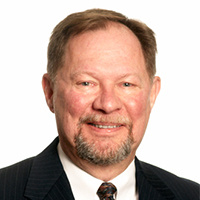High Point Estate Lawyer, Missouri
John D. Landwehr
✓ VERIFIEDEstate, Accident & Injury, Real Estate, Business, Car Accident
John Landwehr joined CVDL in 1984 after serving as an Assistant Attorney General under John D. Ashcroft for three years. He practices in the areas ... (more)
Diana C. Farr
Family Law, Business Organization, Estate Planning, Real Estate
Status: In Good Standing
James W. Gallaher
Estate Planning, Corporate, Business Organization, Administrative Law
Status: In Good Standing
Janet E. Wheeler
Family Law, Business Organization, Estate Planning, Real Estate
Status: In Good Standing
FREE CONSULTATION
CONTACTMichael Madsen
Business Organization, Estate Planning, Mental Health, Health Care
Status: In Good Standing
Ronald K. Carpenter
Estate Planning, Corporate, Business Organization, Banking & Finance
Status: In Good Standing
Sherry A. Mariea
Business Organization, Commercial Real Estate, Construction, Estate Planning
Status: In Good Standing


